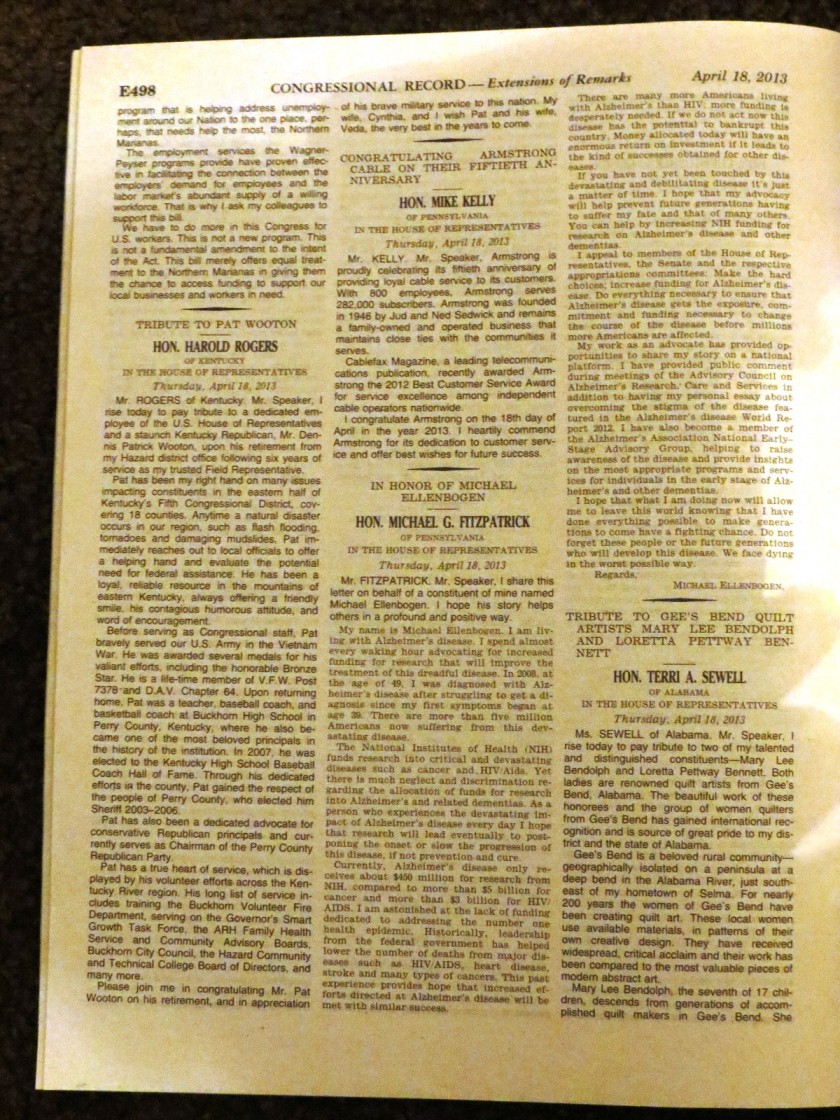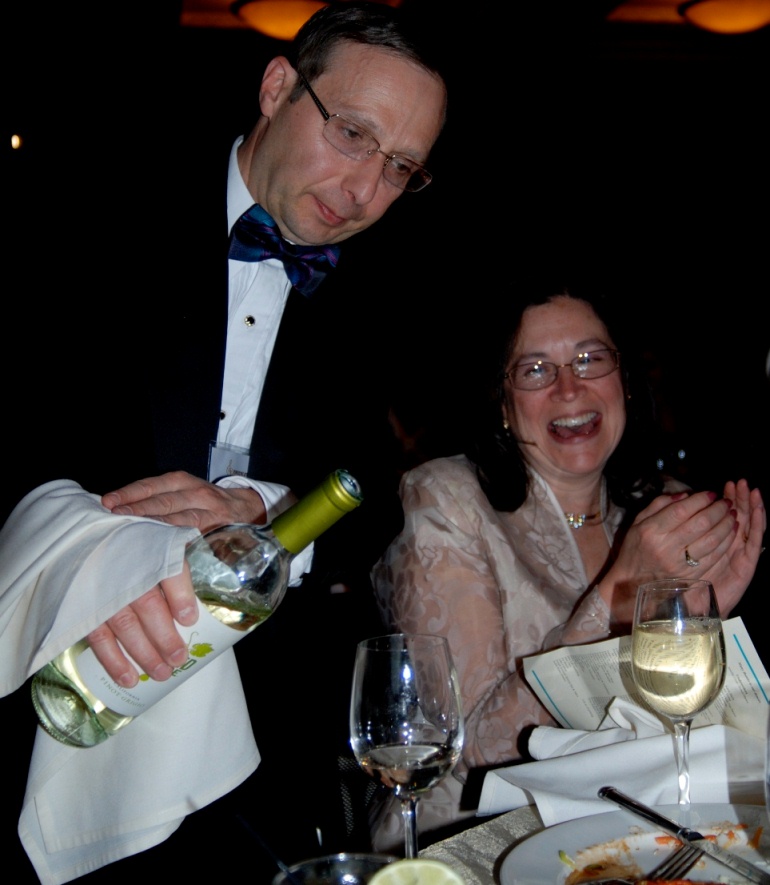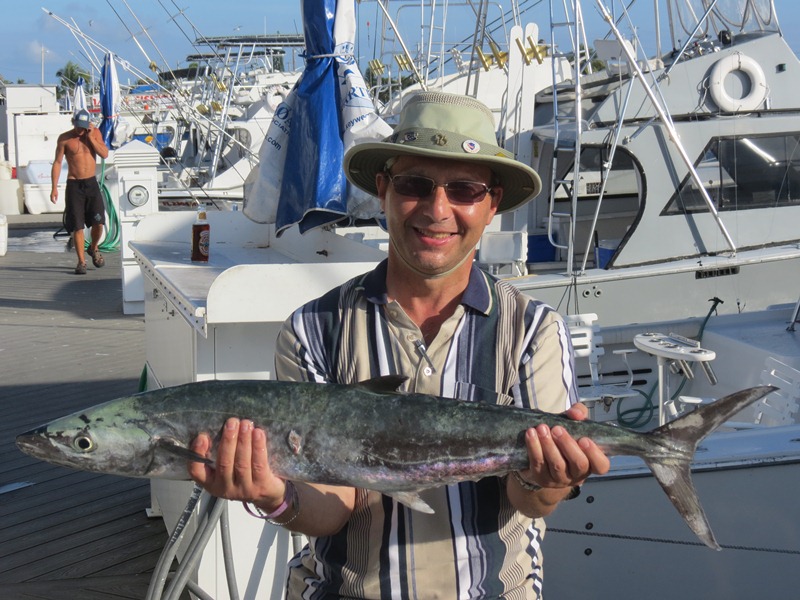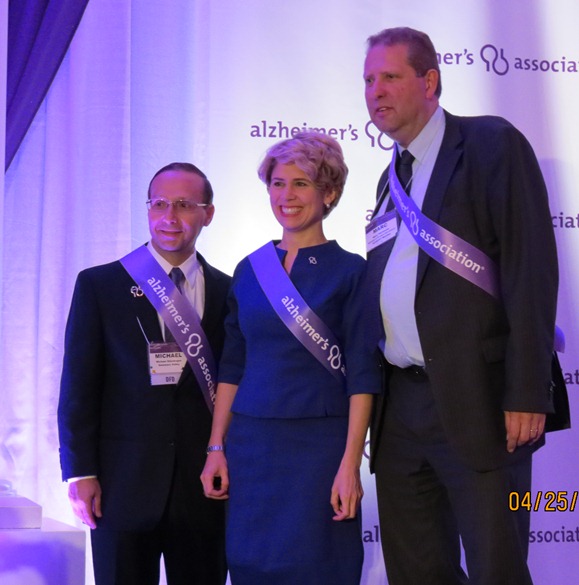Michael Ellenbogen was diagnosed with early-onset Alzheimer’s disease at age 49.
Ten years earlier, this husband and father lost his job as the network operations manager for a Fortune 500 financial firm. His razor-sharp concentration had been eluding him and despite his efforts to hide it, he began a journey paved with forgetfulness.
- Imagine not remembering your only child’s birthday.
- Imagine forgetting your wedding to your childhood sweetheart.
- Imagine going on a vacation and not being able to remember where you were, when you went, or even what you did.
- Imagine not being able to talk about the big fish you actually caught or as Michael wrote in an email, “Here is the big fish that caught me.”
While I love traveling, I cannot remember much of where I go until my wife joggles my mind. I wish I could [travel] all the time. It’s so great to meet new people and different cultures and great food.
After years of trying to cover it up by taking meticulous notes and setting up reminder systems, Michael finally learned what was happening to him.
Regrettably, had he known earlier that he had early-onset Alzheimer’s disease; he may have qualified for long-term disability benefits and a portion of his salary. Undeterred, he fights each day with every fiber of his being.
Michael Ellenbogen speaks openly and honestly to educate others.
Do you think I relish the fact that my wife is going to have to take complete care of me?
Do you think I enjoy waking up every day, thinking, “Is today the day I lose my voice or my ability to feed myself?”
Between moments of forgetfulness, Michael Ellenbogen has capitalized on those periods of remarkable lucidity to make several significant accomplishments such as the following:
- encouraged the Alzheimer’s Association to include a person with early-onset Alzheimer’s on their advisory committee. Michael now serves as a National Early-Stage Advisor, representing the needs of those diagnosed with early-onset Alzheimer’s.
- campaigned to include a person with Alzheimer’s to the Pennsylvania Alzheimer’s Disease Planning Committee, where he currently holds an appointment.
- urged the National Alzheimer’s Project Act’s (NAPA) Advisory Council to include the voice of someone living with Alzheimer’s in order to reduce the stigma of living with dementia and to raise awareness while campaigning for increased funding for Alzheimer’s.
- authored a new book—Ellenbogen’s second.

- Michael’s message was recently entered into the Congressional Record.
Michael Ellenbogen is on an urgent mission.
Ellenbogen wants to eradicate this disease.
Until then, he wants to raise awareness, reduce the stigma associated with Alzheimer’s, and raise funds to accomplish the above.
Michael gives us hope that even with Alzheimer’s disease one can lead a full life as his activism shows.
We are all paying the cost for not being proactive; we will all bear the cost if something is not done soon. The end of Alzheimer’s starts with me.
For more information watch this moving 3-minute video by CBS Philly’s Health Reporter, Stephanie Stahl Health: Local man raising awareness about early Alzheimer’s disease.












I’ve seen Michael on Lori La Bey’s show, Alzheimer’s Speaks, a few times. I listen and watch him and usually like what he has to say about Alzheimer’s. I like hearing about this disease from the ‘horses mouth’ so to speak. But I never new anything about the man himself. Now I do, thanks to you Brenda. Michael is an amazing man.
Rose, thanks for highlighting the point of learning about the man behind the Early Onset Alzheimer’s Disease.
Thank you for telling Michael’s story. I was reminded of several of our members of the CARE CLUB and wonder where they are now.
Marlene, I miss those days at GH and all your team did to help us fledgling caregivers. On another note…when I am curious enough and have a handful of minutes to spare, I try to rekindle contacts. The Internet makes it easier. I enter a name and city or state and do a Google search. People are surprised and delighted. I am too after learning that someone took time to find me after so many years. Bottom LINE: We like knowing that we’re being thought of.